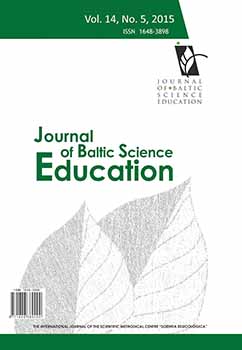A SCIENCE, TECHNOLOGY, ENGINEERING AND MATHEMATICS COURSE WITH COMPUTER-ASSISTED REMEDIAL LEARNING SYSTEM SUPPORT FOR VOCATIONAL HIGH SCHOOL STUDENTS
A SCIENCE, TECHNOLOGY, ENGINEERING AND MATHEMATICS COURSE WITH COMPUTER-ASSISTED REMEDIAL LEARNING SYSTEM SUPPORT FOR VOCATIONAL HIGH SCHOOL STUDENTS
Author(s): Shu-Hsuan Chang, Ai-Chiao Ku, Li-Chih Yu, Tsung-Chih Wu, Bor-Chen KuoSubject(s): Social Sciences, Education, School education, Vocational Education, ICT Information and Communications Technologies
Published by: Scientia Socialis, UAB
Keywords: hands-on activities; STEM; Computer-Assisted Remedial Learning System; vocational high school;
Summary/Abstract: One of the significant and distinguishing curriculum characteristics of STEM compared to other subjects domains is hands-on skill development. Hands-on training enables the enhancement of learning because it parallels with the concrete-to-abstract nature of cognitive development, providing additional sources of brain activation via kinaesthetic involvement and elevating students’ motivation and engagement. To bridge the gap between theory and practice, and advance unprepared students’ hands-on skills, this research proposed and implemented an innovative STEM course with the computer-assisted remedial learning system (CARLS) in the vocational high school experience in Taiwan. The effects of STEM course were examined through an experiment with learning performances hypotheses. A total of 32 students in a vocational high school in Taiwan voluntarily participated in this research and a one-group pre-test and post-test pre-experimental design was adopted. The results of this experimental course demonstrated that CARLS is effective and contributed in enhancing students’ knowledge, achievement and hands-on skill performance in this STEM course. Suggestions and implications for STEM education is also made for practitioners and educators.
Journal: Journal of Baltic Science Education
- Issue Year: 14/2015
- Issue No: 5
- Page Range: 641-654
- Page Count: 14
- Language: English

